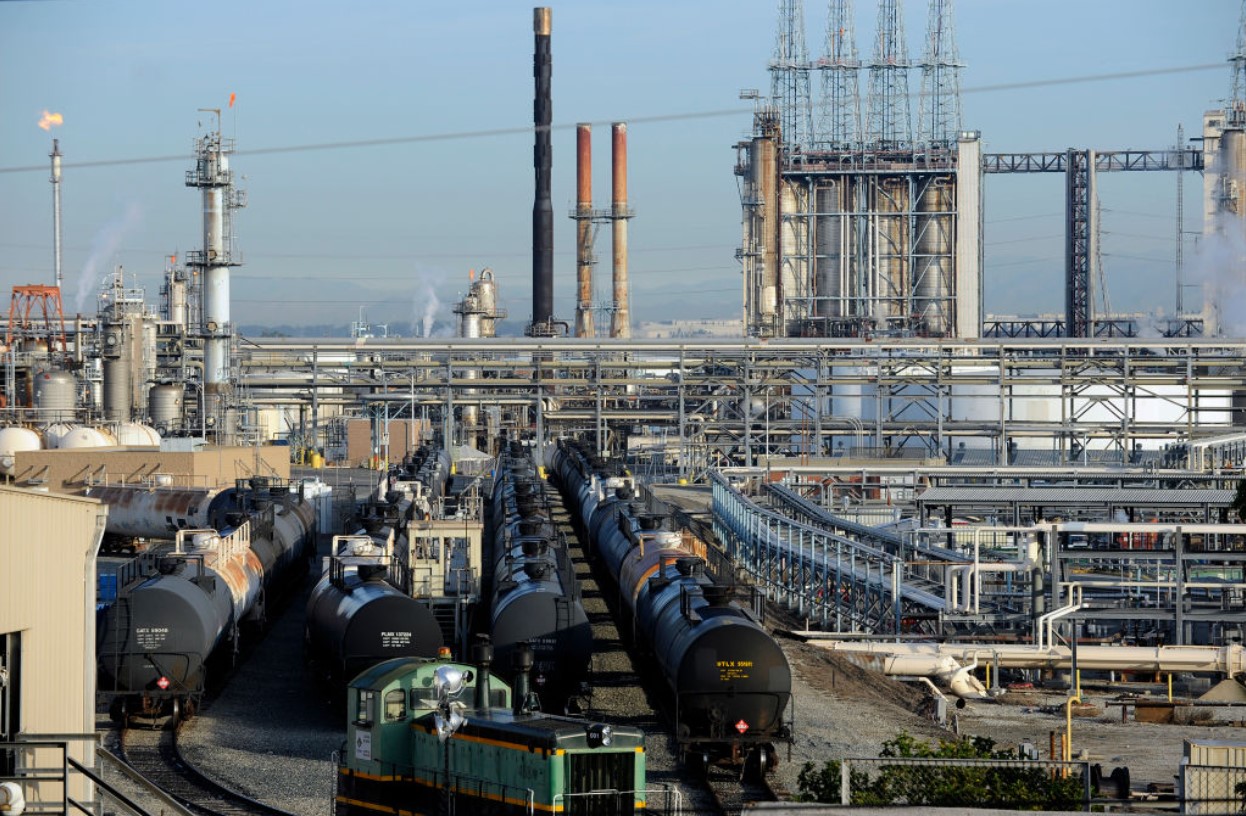New California Regulation Could Force Companies to Disclose All Greenhouse Emission Data
The climate change conversation is one of, if not the most, important of the 21st century. Research has shown that if the global community does not take action soon, planet Earth will never recover from the damage humans have caused.
And California has decided to do just that: A new statewide legislation has been proposed by lawmakers that would force thousands of billion-dollar companies who operate within California to disclose their greenhouse emissions data.
California’s Newest Emissions Legislation
Last week, State Senator Scott Wiener, a Democrat from San Francisco, introduced the new disclosure bill to California lawmakers.

Source: Justin Sullivan/Getty Images
However, while the bill has been accepted, it hasn’t been passed just yet. It still needs to be approved by the Senate and Governor of California, Gavin Newsom. The emissions disclosure bill is a serious undertaking and has sparked a significant debate among politicians, corporations, and citizens within the state.
Understanding California’s Disclosure Bill
If the bill does pass, any company that makes more than $1 billion annually will be required to report their greenhouse emissions to the state of California.

Source: Martin Pope/Getty Images
According to the nonprofit group Ceres, which records data on corporate emissions in California, explained that if the bill goes through, approximately 5,300 companies will be required to disclose their direct and indirect emissions.
Direct and Indirect Emissions: What’s the Difference?
It’s important to understand that asking companies to report their indirect as well as direct emissions is considered quite a big ask.

Source: David McNew/Getty Images
Direct emissions are easier to quantify as most companies already know the emissions statistics of their practices. But indirect emissions, including transportation of products, disposal of waste, and powering buildings, are much harder to gauge and will certainly require more work from the companies.
Problems With Indirect Emissions
Many who oppose the bill claim that asking companies to report indirect emissions is unrealistic.

Source: Bob Riha Jr./Getty Images
Policy advocate at the California Chamber of Commerce Brady Van Engelen explained, “We’re dealing with information that’s either unreliable or unattainable.” The chamber also claims that most companies don’t have the resources to collect the specific data the new legislation is asking for. So if the bill passes, these corporations will have to spend more to do so, leading to increased prices on their products.
Hundreds of Companies in California Already Disclose Direct Emissions
California already has what’s called a cap-and-trade program in place that requires hundreds of companies to disclose their direct emissions. This program, which has existed in the state for a decade, allows certain companies, such as those that produce gas and oil, to essentially purchase pollution allowances and trade them among themselves.

Source: Bob Riha Jr./Getty Images
The difference between the existing and new bills is that with the new legislation, thousands more companies, including retailers, will be required to report direct and indirect emissions. And California lawmakers are hoping that the new law will encourage, if not force, these companies to reduce their carbon footprint.
This Bill Has Been Denied Once Before
A similar version of the new emission disclosure bill has been presented to the California State Senate once before, and it was denied.

Source: David McNew/Getty Images
But State Senator Scott Wiener, who produced the bill on both occasions, claims that the current version is more likely to be approved as it has been adjusted to better suit the needs of the government and corporations.
What Does Governor Newsom Have to Say?
California Governor Gavin Newsom has yet to comment on the newest version of the bill; however, his department opposed the previous proposal.

Source: Bob Riha Jr./Getty Images
Newsom’s Department of Finance claimed that their opposition was due to the fact that the bill would cost the state a significant amount of money that they simply didn’t have in the budget. But Governor Newsom has certainly been working to pass other bills that will assist in climate change control, such as expanding solar power and wind farms, promoting electric vehicles, and setting a goal to reduce greenhouse emissions.
Many Oppose California’s Emission Bill
There are California politicians, citizens, and of course, corporations that completely oppose the new emissions bill.

Source: David McNew/Getty Images
They claim that if the bill is passed, the California state government, along with its tax-payers, would have to spend an innumerate amount of money on ensuring private and public companies have the resources they need to report their emissions. In addition, it could very well lead to increased product prices for the consumer, which could increase the chances of a statewide recession.
Overall, the Bill Has Received Overwhelming Support From the Public
Though overall, the bill has received overwhelming support from California lawmakers and the general public.

Source: Drew Angerer/Getty Images
Democratic Assemblymember Chris Ward explained, “We are out of time on addressing the climate crisis. This will absolutely help us take a leap forward to be able to hold ourselves accountable.” And Mary Creasman of the California Environmental Voters told the press, “Our state can’t just take 2023 off in terms of climate action.”
What Happens if the Disclose Bill Passes?
If the bill is approved by the Senate and the Governor’s office, the California Air Resources Board would then need to accept the ratifications by 2025.

Source: David McNew/Getty Images
After that, companies around the state would be required to disclose direct emissions by 2026 and indirect emissions by 2027. Each company would need to hire its own auditors to verify the data, though the bill claims that California will not penalize companies for any mistakes made in their reports.
California Will Continue to Fight to Protect the Planet
Even if the bill doesn’t pass, California lawmakers will continue to amend the bill, as well as draft more legislation that will lead to decreasing the state’s carbon footprint. In fact, a new law is already being written that states any company with more than $500 million in annual profits will have to report how climate change could decrease their earnings.

Source: Thierry Monasse/Getty Images
With thousands of companies based on California soil, it’s crucial that the state implements legislation that keeps these corporations accountable for their emissions if it wants to meet its 2030 goal of reducing greenhouse gas emissions by 40% below what they were in 1990.
